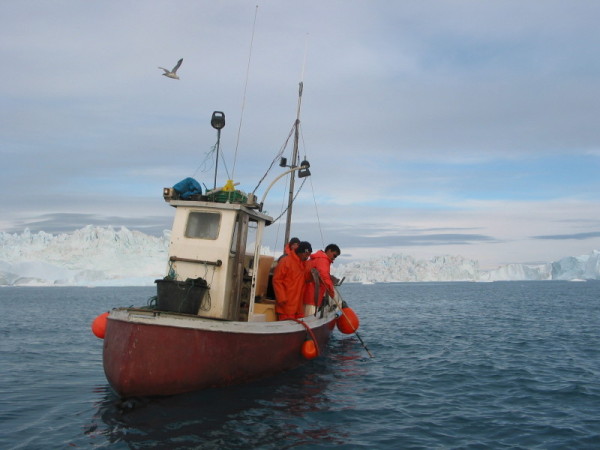Students on Ice: Ice bergs and humpback whales in Disko Bay
How do we, human-beings, understand ourselves in relation to this vast, spectacular, transforming environment? In this arctic light, that question seems to reflect off every surface. This morning we woke to ice bergs and humpback whales in Disko Bay. Two things I have seen only in photographs. Pictures I have looked at so many times I can pull them instantly onto the surface of my brain’s projector. But it’s amazing the mystery that two dimensions can somehow obscure. The ethereal light that emanates from deep within the ice. The gigantic slide of a wet black body rounding up through dark waters. What am I in relation to these things? How do I make sense of them? On the ship, they pose practical questions of navigation. The respectful approach into whale waters. The careful, masterful path chosen between masses of ice. Out in the zodiacs, the students haul up pieces of berg, pass them from hand to hand, lick their clean saltiness. The need to know them fully requires every sense we have, and still it doesn’t feel like enough.

Commercial fishermen in a fishing boat, Disko Bay, Greenland
This awe feels pervasive, like a fog we’ve all entered into together. But as we land in Ilulissat, Maria reminds me of my own bias. This is her home; her brother and sister live here. “I can’t imagine life without ice bergs,” she says. They are as common for her as the cows that graze in farm fields back in my hometown. “I am trying to see them through your eyes, like for the first time,” she smiles.
We hike up a long, wooden boardwalk through the field where the town boards its sled dogs. They watch us pass with only mild interest. Tourists here are commonplace since the Jacobshavn ice fjord was named a UNESCO World Heritage site some years ago. The wonder it inspires from a distance, these giant faces of ice that calved off the glacier now choking the bay, only deepens as we get closer. “It makes me feel so small,” someone says.
We are here to grapple with perspective in every sense. In the afternoon, it’s with a panel discussion on sustainability and development. A biologist, a fisherman, a mining exec, and a climate expert from the Polar Center all offer ways in to the discussion through their own lenses. Some common themes emerge – the role of human beings as consumers and over-consumers, discussions of equity, of risk and opportunity, of what we can learn from past mistakes and what it means to be agents of our own futures. “The North’s resources are important in a global sense,” says Tom Paddon, of Baffinland. “The questions of how–and if–we should develop those resources are what we have to wrestle with. The only thing we can’t do is avoid asking the question.”
“It’s not as straight-forward as it first appears,” he says. And he’s right. Nothing is.
